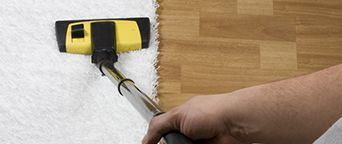Master the Techniques to Prevent Sofa Cover Damage in Wash
Posted on 22/08/2025
Master the Techniques to Prevent Sofa Cover Damage in Wash
Keeping your sofa cover clean and fresh is a key part of home maintenance, but washing them improperly may lead to wear, fading, shrinkage, or even irreparable sofa cover damage. Whether your couch covers are fabric, linen, or synthetic, understanding the best cleaning methods is crucial to preserving their lifespan and appearance. In this comprehensive guide, we reveal proven strategies and expert-approved hacks to help you prevent sofa cover damage during wash. By following these techniques, you'll maintain vibrant, spotless, and damage-free sofa covers for years to come.

Why Proper Sofa Cover Washing Matters
Sofa covers are a vital barrier protecting your furniture from spills, dirt, pet hair, and daily wear and tear. However, improper washing techniques are a leading cause of fabric deterioration, color bleeding, and stretching. Damaged sofa covers don't just look unsightly; they can compromise the fabric's protective qualities and require costly replacements. Learning how to prevent damage while washing sofa covers will not only save you money but also extend the comfort and beauty of your living space.
Understanding the Types of Sofa Cover Fabrics
Before diving into the techniques for preventing sofa cover washing damage, it's essential to identify the material of your covers. Treatment methods and susceptibility to damage vary across fabric types:
- Cotton: Breathable and comfortable, but prone to shrinkage and wrinkling if washed in hot water.
- Linen: Luxurious feel, but can easily shrink, crease, and lose its shape.
- Synthetic (polyester, microfiber): Durable and less likely to fade, but still susceptible to high-heat and harsh detergents.
- Velvet: Delicate, often requires gentle or hand washing methods to maintain plushness.
- Leather/faux leather: Generally not machine washable; requires spot cleaning or special products.
*Always check the care label or the manufacturer's cleaning instructions before washing any sofa cover fabric!*
Essential Pre-Washing Steps to Protect Your Couch Cover
1. Read the Care Label
The care label is your sofa cover's safeguard. Manufacturers provide tested instructions for the best way to clean each specific material. Ignoring these guidelines is a quick path to accidental sofa cover damage in the wash.
2. Spot Clean Stains First
Before tossing the entire cover in the machine, deal with visible stains. Use a fabric-appropriate cleaner or a mixture of warm water and mild detergent. Gently blot (don't rub!) the affected area. This prevents setting stains during the wash cycle and reduces the need for aggressive machine cleaning.
3. Remove Loose Debris
Vacuum or shake out sofa covers to clear dust, pet hair, and crumbs. These can accumulate in your washer and cause fabric abrasion. Keeping covers as debris-free as possible before washing is a simple step often overlooked in sofa cover care routines.
4. Close Zippers & Fastenings
Zippers, buttons, or Velcro can snag or catch on the fabric during washing, resulting in tears, pulls, or loose seams. Always zip or fasten all closures to minimize sofa cover tearing in wash.
Mastering Washing Machine Techniques for Sofa Covers
Choosing the right machine setting and wash approach is pivotal to preventing sofa cover damage while washing. Follow these best practices:
- Gentle/Delicate Cycle: Use a gentle or hand-wash cycle to minimize agitation and prevent stretching or weaving damage.
- Cold or Lukewarm Water: Hot water can shrink, fade, or weaken most sofa cover fabrics. Stick to cold or lukewarm water to preserve fibers and prevent color bleeding.
- Mild Detergent: Avoid harsh chemicals or bleach, which may strip dyes and degrade material. A small amount of mild liquid detergent is best.
- Do Not Overload: Wash one or two covers at a time to allow free circulation. Overloading increases friction, leading to friction damage and poorly cleaned covers.
- Mesh Laundry Bags: For extra protection, place sofa covers inside large mesh laundry bags. This technique shields them from direct machine contact and reduces risk of snags.
Hand Washing Techniques for Delicate Sofa Covers
For delicate materials such as linen or velvet, hand washing is the safest method to avoid sofa cover damage. Here's how to do it right:
- Fill a Tub with Lukewarm Water - Add a small amount of gentle detergent.
- Soak the Cover - Submerge the cover and let it soak for 15-30 minutes.
- Gently Agitate - Swish the cover around with your hands without harsh rubbing or wringing.
- Rinse Thoroughly - Drain and refill the tub, gently pressing water through the cover until detergent is gone.
- Press Out Excess Water - Don't twist or wring; instead, press water out gently between your palms or roll in a towel.
This gentle process substantially lowers the risk of fiber weakening, stretching, or pilling, all of which are common forms of couch cover damage from improper washing.
Expert Drying Tips to Prevent Sofa Cover Damage
Oftentimes, improper drying is responsible for most sofa cover damage. To maintain the integrity and shape of your covers:
- Air Dry Flat: Lay covers flat on a clean towel or drying rack to dry. Hanging can cause them to stretch or deform.
- Avoid Direct Sunlight: UV rays quickly fade and weaken fabric fibers. Dry in the shade or indoors.
- Skip the Dryer: High heat can shrink synthetic and natural fibers. If absolutely necessary, tumble dry on the lowest heat setting for a short burst, but remove while slightly damp to finish air drying.
- Reshape While Damp: As soon as they finish washing, gently pull covers back to their original shape and align seams.
Common Mistakes That Lead to Sofa Cover Damage
Even a single misstep can result in accidental sofa cover shrinkage, tearing, or fading. Watch out for these mistakes:
- Ignoring Care Instructions: Every cover is unique; always check labeling before washing.
- Using Bleach or Harsh Cleaners: These ingredients are too abrasive and cause discoloration and breakdown of fibers.
- Hot Water Washing: Especially risky for cotton, linen, and certain synthetics.
- Overdrying: Tumble-drying for too long makes fabric brittle and prone to tearing.
- Not Closing Fastenings: As stated before, unfastened zippers and buttons can create snags and rips.
- Washing Too Frequently: Constant washing increases wear. Spot clean when possible and only machine wash when truly needed.
Alternative Cleaning Methods for Sofa Covers
1. Spot Cleaning for Minor Issues
If your sofa cover just has minor marks or localized stains, don't subject the entire cover to a wash cycle. Using a damp cloth, mild detergent, and gentle pressure often suffices. For persistent odors, baking soda can be sprinkled and then vacuumed after an hour.
2. Steam Cleaning
For non-removable sofa covers, steam cleaning provides a safe route to sanitize and remove dirt without harsh agitation. Always test on a hidden area first to ensure no color change or watermarks.
3. Professional Cleaning
If in doubt, especially with delicate or high-end covers, consider professional upholstery cleaning. Professionals use industry-approved techniques that dramatically reduce the risk of sofa cover washing damage.
How to Maintain Sofa Covers Between Washes
To preserve the look and life span of your sofa covers and reduce the frequency of washing, incorporate these habits into your cleaning routine:
- Vacuum regularly: Use a soft brush attachment to remove dust, pet hair, and crumbs.
- Rotate or flip cushions: This prevents uneven wear and keeps covers looking fresh.
- Avoid eating on the sofa: Reduces the risk of stains and food particles embedding in the fabric.
- Use throws or decorative blankets: Adding an extra layer protects the covers from spills and claws.
- Treat spills immediately: The faster you address a spill, the less likely it will stain or damage the fibers.
Choosing the Best Sofa Cover for Easy Maintenance
If you're in the market for new sofa covers and want to avoid future damage, look for options with these features:
- Machine-washable materials: Prefer synthetic blends or pre-shrunk cotton.
- High thread count: Denser weaves resist tearing and wear.
- Colorfast dyes: These resist fading even after multiple washes.
- Removable with sturdy zippers: Ensures easy removal and lower risk of damage in each cycle.
_Spending a little more on high-quality, easy-care covers up front can save you years of hassle and the headache of damaged upholstery._
FAQs on Preventing Sofa Cover Damage in Wash
Q: Can I Machine Wash All Types of Sofa Covers?
A: No. Always check fabric type and care labels. While many cotton and polyester covers are machine washable, linen, velvet, silk, and leather often are not and require specialized cleaning.
Q: What Detergent Is Best for Washing Sofa Covers?
A: Use a mild, liquid detergent with no bleach, optical brighteners, or fabric softeners. These can break down fibers and create sticky residue that attracts more dirt.
Q: How Often Should I Wash My Sofa Covers?
A: Ideally, every three to six months, depending on usage and home conditions. Spot clean as often as needed to minimize full washes.
Q: What Should I Do If My Sofa Cover Is Already Damaged?
A: Stop regular washing and attempt gentle hand cleaning. Repair small holes or tears with matching thread. For major damage, consider professional restoration or replacing the cover.

Recap: Key Steps to Prevent Sofa Cover Damage in Washing
- Always read and follow care instructions
- Spot clean before machine washing
- Use gentle cycles, cold/lukewarm water, and mild detergents
- Dry covers flat and reshaped away from direct sunlight
- Avoid over-washing and harsh chemicals
By mastering these techniques, you'll minimize the risk of sofa cover damage in the wash and showcase a well-kept, inviting living space. Treat your sofa covers with care, and they'll reward you with comfort, style, and protection for years to come!
Conclusion: Enjoy Spotless, Long-Lasting Sofa Covers
With these sofa cover washing prevention tips, you have all the knowledge needed to protect your investment and maintain a stunning home. From recognizing your fabric type and using proper washing techniques to adopting smart drying and maintenance habits, a little extra diligence goes a long way. Take these proven steps, and enjoy the peace of mind that comes with bright, clean, and undamaged sofa covers for every season!







